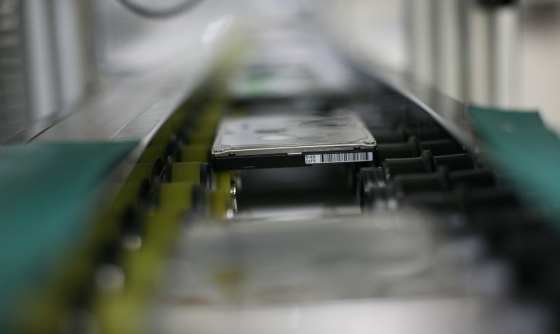A reduction in the trade deficit by £20bn and an estimated 200,000 UK-based jobs could be created over the next ten years, as mid-sized manufacturing firms end the outsourcing of production to Asia in response to changing business dynamics, according to a report published today.
Many kinds of manufacturing have reached a ‘tipping point’ in terms of whether they should be located overseas or in the country where the goods are consumed, say the report’s authors.
They believe that large-scale global trends – such as rising oil costs and regulations on emissions – combined with new production technologies will make global manufacturing uneconomic and unattractive to many businesses.
Mid-sized manufacturing companies will have a significant role to play in the future of UK manufacturing, rebalancing of the economy and overall growth.
Dr Finbarr Livesey
The UK’s estimated 2,500 mid-sized manufacturing companies – and, critically, the support they receive from government and the finance industry – will be crucial to capitalising on these trends, argue the authors, as they have the agility, ambition and a “closeness to their customer base” best suited for a return to localised production and distribution.
But the authors warn that these mid-sized companies are “under-reported and undervalued”- overlooked by government, lenders and the media. They question whether the UK is ready to respond to the challenges and opportunities this changing context requires.
The report Making at home, owning abroad was written by Dr Finbarr Livesey, a lecturer in Public Policy at Cambridge, in conjunction with Julian Thompson, Director of Enterprise at the Royal Society for the encouragement of Arts, Manufactures and Commerce (RSA) and supported by Lloyds banking group.
It will be presented at today at the RSA, where those speaking about the research include the Rt Hon Vince Cable MP, Secretary of State for Business, Innovation and Skills.
The authors’ believe that the movement of production to Asia based on cost advantages may have “run its course” for many industries, pointing to signs of change such as Apple and GE restarting production in the US and ‘next generation’ ultra-affordable computer Raspberry Pi returning its production to the UK.
Emerging production technologies should make it possible to make lower volumes closer to the consumer. Shorter distances would greatly reduce emissions and contribute to so-called “green growth”, as well as providing a ‘shot in the arm’ so desperately needed by many of this country’s regional economies.
Many mid-sized companies – those with a turnover between £25m and £500m and between 100 and 2000 employees – are currently concerned about finding and retaining skilled employees and attracting top management. Relatively low profiles mean that they are rarely at the forefront of the minds of top graduates.
But, as the report points out, it is these very companies that have continued to grow through the recession, adding employment while large companies have been outsourcing and “shedding jobs”. The “agile” mid-sized companies will be the ones large enough to invest in the new technology and have the ambition to grow internationally through investing in productive assets overseas.
While, if well managed, the authors estimate that adapting to these changes by assisting mid-sized firms could reduce the UK’s trade deficit by a third and create up to 200,000 new jobs in the next decade, they also warn that failure to take action would result in production opportunities being lost to other EU countries – such as Germany and France – and continue the spiral of decline we are currently seeing in UK manufacturing.
“The UK economy needs to find a path to sustained growth,” write the report’s authors. “Since the recession of 2008/2009 gross domestic product has either contracted or grown at very low levels, leading to an economy that is flat-lining”.
“Mid-sized manufacturing companies will have a significant role to play in the future of UK manufacturing, rebalancing of the economy and overall growth. It is imperative the industry and government begin to discuss how investment decisions now will affect growth for both companies and the country.”
Photo credit: A drive travels down the manufacturing line, by Robert Scoble via Flickr











